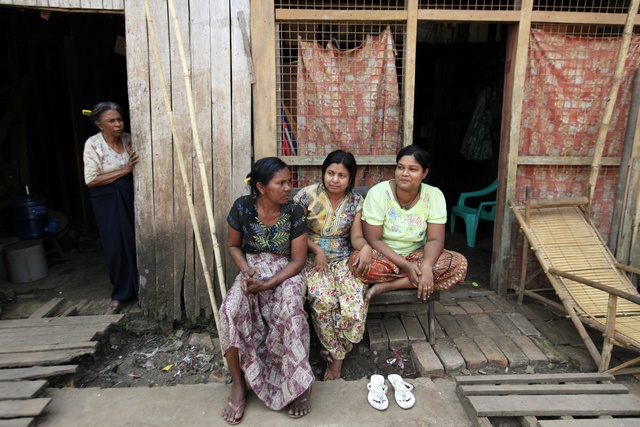Ninety-seven civil society organisations, including several women’s rights groups, spoke out on Tuesday against Burma’s proposed Interfaith Marriage Act.
In March, Burmese President Thein Sein established a committee to draft a legislative package protecting national race and religion, after a coalition of influential Buddhist monks lobbied for the laws.
Civil society groups across Burma released a joint-statement on Tuesday denouncing the laws, claiming that the Interfaith Marriage Act “is based on discriminatory beliefs that women are generally physically and mentally weaker than men, and therefore need to be supervised and protected.”
The statement further suggests that the legislation could be used to gain favour in the lead-up to the 2015 elections.
More fundamentally, the group rejected the extremism that underpins the law: “Faith-based extremist nationalism can destroy state peace and incite conflict; we reject all political violence that causes people’s physical and mental insecurity.”
Women’s rights activist May Sabe Phyu said the Interfaith Marriage Act betrays a belief that protecting national identity necessitates the subjugation of women.
“Women are portrayed as mentally and physically inferior to the men,” she said, “whether it’s about faith or marriage or how many children to have – women should have the right to make their own decision about their life, and adopting this law will restrict freedom of choice.”
[related]
Aung Myo Min, director of the rights group Equality Myanmar, said the law prohibits freedom of faith and institutionalises human rights abuse.
“Requiring religious conversion in order to marry a Buddhist woman not only violates freedom of faith, but also a woman’s right to make her own choice,” said Aung Myo Min. “Adopting the law goes beyond protection of race and religion, it is harmful to the freedom of faith.”
The statement further urged the government to prioritise amending the 2008 Constitution and implement peace in the country, instead of pushing racial and religious protection laws that remain highly divisive.
Presidential spokesman Ye Htut said that the law’s drafting committee was instructed to ensure the legislation was not detrimental to women’s rights.
“The president mentioned in his directive that … [the law must] impose no harm upon women’s rights,” he said, “so basically this [argument by the CSOs] is not valid.
“If they have concerns with the law, then they should raise them to the law drafting committee,” he added.
The movement to adopt laws to protect race and the Buddhist religion in Burma gained traction after communal violence swept the nation in mid-2012. Riots between Buddhists and Muslims have to date left more than 200 people dead and about 140,000 displaced, mostly Muslims.
Ethno-religious violence has given rise to a Buddhist-nationalist movement propagated by influential religious leaders such as Ashin Wirathu and members of the government-appointed National Head Monks Committee.



